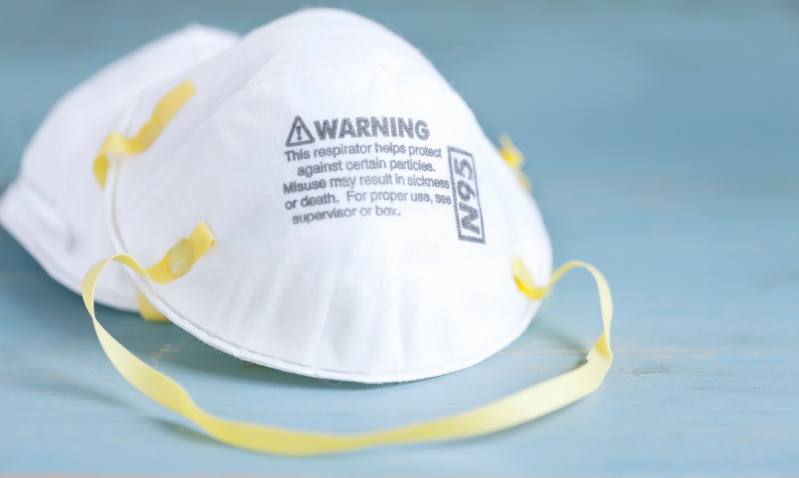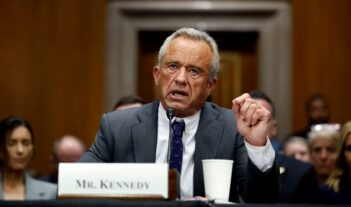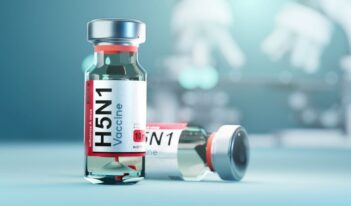
The CDC’s newest mask guidance raises concerns about the authenticity of KN95 and N95 masks on the market.
Are the KN95 or N95 masks you recently ordered authentic? How can you be sure?
Demand in the market for these masks soared last month following new guidance issued by the Centers for Disease Control and Prevention (CDC). Because KN95 and N95 masks offer higher levels of protection than do other masking alternatives, it is no surprise that consumers scrambled to stockpile supplies of these masks during the wave of infections caused by the Omicron variant.
In addition to locating quality masks available for purchase, consumers also need to worry about fakes. Throughout 2020 and 2021, the CDC found that approximately 60 percent of KN95 masks the agency evaluated were counterfeits. Even health care providers have not been immune to fake masks. In fact, a recent national investigation found that major medical providers across the country had purchased more than 10 million counterfeit masks for their staffs.
Avoiding counterfeit masks is crucial because not all masks can filter air equally against new and more contagious variants. According to the CDC, authentic N95 and KN95 masks offer better protection for users because of their ability to filter up to 95 percent of air particles when worn properly. These masks are also preferred to cloth and surgical alternatives, which studies show to have varying levels of filtration efficiency. Cloth masks, some experts argue, “are little more than facial decorations” against highly contagious variants like omicron.
In contrast to other masking options, N95s are regulated, tested, and certified by the National Institute for Occupational Safety and Health (NIOSH), a federal research agency within the CDC. As the only mask regulated by a U.S. government agency, N95s are considered the golden standard for protective masks in the United States. To avoid counterfeits, consumers can confirm authenticity by checking the stamped approval number and manufacturer located on every N95 against NIOSH’s Certified Equipment List.
KN95s, however, present more uncertainty when ensuring authenticity because they are not subject to U.S. regulatory approval or oversight. Instead, these masks are produced and regulated by the Chinese government. To check for authenticity, experts recommend looking for both a KN95 identifier and either codes GB 2626-2006 or GB 2626-2019 printed on the outside of the mask, which indicate it has passed Chinese filtration testing standards.
Although KN95 and N95 masks have been available throughout the pandemic, many consumers have not had the luxury of using them because of strains on supply chains and shortages of personal protective equipment. Now that many mask shortages and supply chain challenges have been alleviated, however, experts suggest that consumers approach their new mask purchases with greater caution.
When shopping for masks, experts recommend buying from vetted distributors such as Project N95, a non-profit devoted to increasing accessibility of authentic, quality personal protective equipment. Alternatively, consumers can shop for masks by buying directly from trusted company storefronts such as 3M and Kimberly-Clark from online retailers. Retailers such as Lowe’s, CVS, and Home Depot also often carry certified N95 masks for home improvement purposes that can also be used on a daily basis for protection from COVID-19.
Shoppers should be wary of masks that are significantly more expensive than average and of sellers who have masks available in suspiciously large quantities. Because legitimate manufacturers will not charge a premium during a global pandemic, price gouging from sellers is a sign of potential fraud.
For anyone concerned about obtaining authentic masks, help has been on the way. The federal government recently initiated a plan to send 400 million N95 masks to pharmacies and local post offices for free distribution to the public. Many public health officials celebrated the government’s move, arguing that making masks free to the public addresses those who would have been most vulnerable to the virus, such as unhoused individuals or families for whom purchasing N95 masks would be cost-prohibitive.
Some medical professionals, however, expressed concern about the sustainability of the initiative since N95 masks are designed to be disposable and supplies will inevitably need to be replenished. Should another major wave of infections occur because of a new coronavirus variant, consumers would need to head back to the marketplace in search of legitimate, safe, and effective masks while still confronting the potential for counterfeits.
As long as COVID-19 continues to threaten public health, masks are likely here to stay, whether mandated in public or not. But as consumers adjust to evolving health guidance, they should remain vigilant for counterfeiters looking to profit from the ongoing pandemic.



